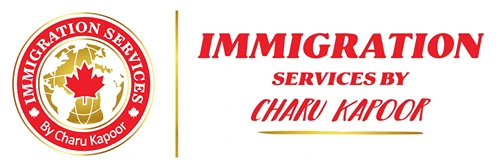Canada, with its welcoming approach to immigrants and diverse multicultural landscape, has become a top destination for those seeking a new life abroad. However, navigating the Immigration assessment process can feel overwhelming. Understanding the key factors considered during an Immigration assessment is crucial for increasing your chances of success, especially for programs like Business immigration.
Here are seven crucial factors to consider for a successful Immigration assessment in Canada:
1. Eligibility:
The first and most important step is determining your eligibility for immigration programs offered by Canada. The Canadian government offers various pathways to permanent residency, each with specific eligibility criteria. These criteria often consider your:
- Age: Points are awarded based on your age, with younger applicants generally receiving higher scores.
- Education: Your educational credentials, including degrees and diplomas from recognized institutions, can significantly impact your points.
- Work experience: Relevant and skilled work experience, especially in occupations in demand within Canada, is highly valued and can significantly boost your score.
- Language skills: Proficiency in English or French, Canada’s official languages, is essential for successful integration and is evaluated through standardized tests.
- Adaptability: Your ability to adapt to Canadian life, considering factors like your social and cultural connections in Canada, is also assessed.
2. Choosing the Right Program:
Canada offers various immigration programs, each catering to specific applicant profiles and needs. Choosing the program that best aligns with your qualifications and goals is crucial. Popular pathways include:
- The Express Entry System: This points-based system is ideal for skilled workers with relevant work experience and language proficiency.
- Provincial Nominee Programs (PNPs): These programs are managed by individual provinces and offer more specific opportunities based on regional labor market needs.
- Business immigration programs: These programs are designed to attract entrepreneurs and investors who can contribute to the Canadian economy.
Carefully research each program’s requirements and consult with an immigration professional to determine the path that best suits your profile.
3. Language Proficiency:
Strong English or French language skills are crucial for success in Canada. These skills are not only essential for daily life but also play a significant role in the Immigration assessment process. Aim to score high on standardized tests like IELTS or CELPIP to gain an edge in your application.
4. Educational Credentials:
Canada values education and awards points based on the level and type of your educational qualifications. Ensure your transcripts and diplomas are accurately translated and verified by recognized organizations if they were issued outside of Canada.
5. Work Experience:
Relevant and skilled work experience directly translates into points during the Immigration assessment. Highlight your experience in detail, focusing on transferable skills and responsibilities in demand within the Canadian labor market.
6. Adaptability:
Your ability to adapt to life in Canada is an essential factor considered during the assessment. Demonstrating connections to Canada, such as family members or job offers, can strengthen your application.
7. Professional Help:
Navigating the Immigration assessment process can be complex. Seeking guidance from a licensed immigration consultant or lawyer familiar with Canadian immigration laws and procedures can significantly increase your chances of success. They can help you choose the right program, prepare a strong application, and address any complexities that may arise.
By carefully considering these key factors and seeking professional guidance, you can increase your chances of a successful Immigration assessment and embark on your new life in Canada with confidence. Remember, thorough research, preparation, and professional assistance are invaluable assets in your immigration journey.

